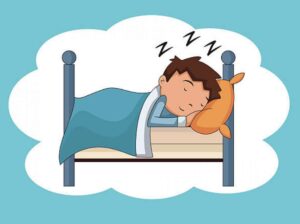Depression is a mental health disorder that affects millions of people each year. While depression can be a very difficult condition to manage, there are many things you can do to improve your mental health and feel better. In this guide, we will discuss how can you start dealing with depression with some strategies. If you are struggling with depression, please don’t hesitate to reach out for help. You are not alone!
Contents
- 1 Why Dealing With Depression Is Important?
- 2 Tips To Deal With Depression
- 2.1 Talk to someone who understands
- 2.2 Identify your triggers
- 2.3 Write it out
- 2.4 Stay active
- 2.5 Eat a healthy diet
- 2.6 Get enough sleep
- 2.7 Do things that you enjoy
- 2.8 Challenge your thoughts
- 2.9 Create a routine
- 2.10 Practice gratitude
- 2.11 Incorporate relaxation techniques
- 2.12 Set realistic goals
- 2.13 Reward yourself
- 2.14 Join a support group
- 2.15 Consider therapy
- 3 Conclusion
Why Dealing With Depression Is Important?
 Depression is a mental health disorder that can have a significant impact on an individual’s quality of life. It is characterized by persistent feelings of sadness, anxiety, or worthlessness. Sometimes it can be accompanied by physical symptoms such as fatigue, sleep problems, and changes in appetite.
Depression is a mental health disorder that can have a significant impact on an individual’s quality of life. It is characterized by persistent feelings of sadness, anxiety, or worthlessness. Sometimes it can be accompanied by physical symptoms such as fatigue, sleep problems, and changes in appetite.
Dealing with depression is very important because it can help prevent the disorder from progressing and becoming more severe. Additionally, there are various reasons why people with depression should seek treatment. Some of these reasons include:
- Improve the quality of their life
- Reduce the risk of suicide
- Prevent the disorder from worsening
- Improve relationships with family and friends
- Be able to function better at work or school
- Reduces the risk of developing other mental health disorders
So the reasons can be divided into two broad categories: improving the quality of life and preventing further deterioration. And these are both very important reasons to seek treatment for depression. Therefore, if you or someone you know is struggling with depression, it is important to seek professional help.
Tips To Deal With Depression
Now, as you are probably aware, depression is a serious mental illness that should not be taken lightly. So here are some things to help you deal with depression. These include:
Talk to someone who understands
This could be a therapist, psychiatrist, or even a close friend. Just talking about how you feel can be incredibly therapeutic and help you understand your thoughts and feelings better. Because when you’re depressed, it’s easy to get caught up in a negative spiral of thoughts and it can be difficult to see things clearly.
For example, if you’re feeling down about yourself, talking to someone who understands can help you realize that your thoughts are not necessarily accurate. And even if they are accurate, they don’t have to define you as a person.
Identify your triggers
 What sets off your depression? Is it a certain time of year, an event that happened, or something else entirely? identifying your triggers is an essential first step in managing your depression. Once you know what sets off your depression, you can develop a plan to avoid or manage those triggers. There are a few common triggers for depression:
What sets off your depression? Is it a certain time of year, an event that happened, or something else entirely? identifying your triggers is an essential first step in managing your depression. Once you know what sets off your depression, you can develop a plan to avoid or manage those triggers. There are a few common triggers for depression:
- Major life changes, such as moving to a new city or getting married
- The death of a loved one
- A difficult relationship
- Financial problems
- A chronic illness or disability
- Substance abuse
Write it out
Writing about your depression can also help you organize your thoughts and figure out what is causing your low moods. You could start a journal or simply write down your thoughts in a notebook. Doing this can help you identify any patterns in your thinking and behavior so that you can start to address them.
It is more like journaling, which can help to keep everything in perspective. As you document your thoughts, you can often start to see progress being made which can help motivate you to keep going.
Stay active
This is one of the most important things you can do when dealing with depression. Exercise releases endorphins, which have mood-boosting effects. Studies have shown that even a moderate amount of exercise can be helpful. But if you are not comfortable with doing exercise, any type of physical activity can be beneficial. Just get up and move.
For example, you can choose to walk instead of drive when running errands. Or, take the stairs instead of the elevator. You can also join a sports team or an exercise class. When you make yourself active and get your heart rate up, you will start to feel better.
Eat a healthy diet
What you eat has a big impact on how you feel. When you are depressed, you may lose interest in food or turn to unhealthy comfort foods. But it is important to eat nutritious meals to give your body the fuel it needs. Make sure to eat plenty of fruits, vegetables, and whole grains. Limit sugary and fatty foods.
Healthy eating always serves as a great foundation for managing any health condition, but it is especially important when you are dealing with depression. A healthy diet can help improve your mood and give you the energy you need to get through the day.
Get enough sleep
 Sometimes, people ignore how important sleep is to their mental health. When you’re dealing with depression, it’s even more crucial that you get a good night’s sleep. This means making sure you have a regular sleep schedule and avoiding drinking caffeine or alcohol before bed. If you can’t seem to fall asleep, you can try:
Sometimes, people ignore how important sleep is to their mental health. When you’re dealing with depression, it’s even more crucial that you get a good night’s sleep. This means making sure you have a regular sleep schedule and avoiding drinking caffeine or alcohol before bed. If you can’t seem to fall asleep, you can try:
- reading a book
- taking a bath
- drinking herbal tea
If you’re still having trouble sleeping, talk to your doctor. It might be a sign that your depression is more serious than you thought.
Do things that you enjoy
When you are dealing with depression, it is important to find things that make you happy. And stick with them. Doing things that you enjoy can help improve your mood and make you feel better. It can also help take your mind off of your depression.
There are a lot of different things that people enjoy doing. Some people like to read, others like to listen to music, and still others like playing sports. Find something that you enjoy and make sure to do it every day. Because when you are happy, your depression will start to fade away.
Challenge your thoughts
Dealing with depression is not an easy task, but it is possible. One of the first steps to take is to challenge your negative thoughts. Depression can cause you to think negatively about yourself, your life, and the world around you. These negative thoughts can become a self-fulfilling prophecy, making your depression worse.
To challenge your negative thoughts, start by identifying them. Write down your negative thoughts on a piece of paper or in a journal. Once you have identified your negative thoughts, start to question them. Are these thoughts really true? What evidence do you have to support these thoughts? Are there any other ways to look at the situation?
Answering these questions can help you to see that your negative thoughts are not necessarily accurate. This is an important first step in dealing with depression.
Create a routine
This is an important step in managing your mental health because it helps to ground you and gives you a sense of stability. When you have depression, it can be hard to motivate yourself to do anything, let alone stick to a routine. But having a set schedule can help anchor you during tough times.
Start by mapping out what you need or want to accomplish each day. This can be as simple as making your bed in the morning or taking a few moments to meditate. Whatever it is, make sure it’s something you can commit to doing every day. Then, build up from there. Once you have a solid routine established, you can start adding in other activities that support your mental health.
Practice gratitude
In life, people often find themselves feeling down or struggling. One way to start feeling better is by practicing gratitude. When you’re grateful for what you have, it’s easier to see the good in your life. You can practice gratitude by writing down things you’re thankful for each day, meditating on positive experiences from your past, or simply taking a moment each day to appreciate the good in your life.
As depression can occur due to negative thinking patterns, gratitude can help break the cycle of negative thoughts and start to create a more positive outlook on life. Additionally, studies have shown that gratitude can lead to improved mental health, better sleep, and reduced stress levels.
Incorporate relaxation techniques
 It is important to find healthy coping mechanisms to deal with depression. One way to do this is to incorporate relaxation techniques into your daily routine. This could involve things like:
It is important to find healthy coping mechanisms to deal with depression. One way to do this is to incorporate relaxation techniques into your daily routine. This could involve things like:
- Yoga
- Meditation
- Deep breathing exercises
- Tai chi
These are common techniques but you can even just take a few minutes each day to sit in silence and clear your mind. These can help manage stress and anxiety levels, which can contribute to depression.
Set realistic goals
Depression is often accompanied by a sense of hopelessness, making it difficult to see a way out. When goal setting, be sure to keep them realistic and achievable. This will help you maintain a sense of accomplishment and forward momentum. Because if you try to do too much at once, you may get overwhelmed and give up.
So, rather than vowing to completely change your life overnight, start with smaller goals. For instance, you could commit to going for a walk every day or cooking yourself a healthy meal once a week. It doesn’t matter how big or small the goal is, as long as it’s something you can realistically achieve.
Reward yourself
When you are feeling depressed, it can be hard to find the motivation to do anything. So, when you do something that makes you feel good, make sure to give yourself a reward. This could be something as simple as buying yourself a new book or taking yourself out for ice cream.
Whatever makes you happy, make sure to treat yourself every once in a while. This will help you to feel good about yourself and remind you that there are still things that make you happy. Eventually, it will become easier to find the motivation to do things and you will start to feel better.
Join a support group
Many people have found that joining a depression support group is very helpful. This can provide you with an outlet to express how you’re feeling, as well as give you some tips on how to cope with your depression. Support groups aim to help people feel less alone and offer coping strategies.
There are many different types of support groups available, so it’s important to find one that’s right for you. You can ask your doctor or mental health professional for recommendations. You can also search online or look in your local community for a list of support groups. Be sure to choose a group that’s supportive and positive. Avoid groups that focus on negative experiences or make you feel worse about yourself.
Consider therapy
 It might be difficult to open up about your depression to friends or family. If you don’t feel comfortable talking to them about it, consider therapy. A therapist can help you understand and manage your depression. There are different types of therapy that can be helpful for depression.
It might be difficult to open up about your depression to friends or family. If you don’t feel comfortable talking to them about it, consider therapy. A therapist can help you understand and manage your depression. There are different types of therapy that can be helpful for depression.
- Cognitive behavioral therapy (CBT) is one type that focuses on changing negative thinking patterns. This can help you manage your depression by changing the way you think about yourself and the world around you.
- Another type of therapy is interpersonal therapy (IPT). This focuses on your relationships and how they might be affecting your depression. IPT can help you identify and change any negative patterns in your relationships.
If you’re considering therapy, talk to your doctor or mental health professional. They can help you find the right therapist for you. Also, you should know that therapy takes time. It might take several weeks or months to see results. Be patient and stick with it.
All in all, these are a few ways to manage your depression. If you’re feeling depressed, talk to a mental health professional. They can help you find the best treatment for you. Remember, you’re not alone. Millions of people deal with depression every day. You can get through this.
Conclusion
To conclude, dealing with depression might seem daunting, but it is something that can be managed with the help of a professional and/or loved ones. There are many resources available to those struggling with their mental health, so do not hesitate to seek out help if needed. Otherwise, depression is not something that has to be dealt with alone and there are many people who care and want to help.
For more tips and guidance, you can reach out to Therapy Mantra. The team of professional counselors is more than happy to help you in your journey to recovery. Contact us today to learn more about our services. You can also book an online therapy session or download our free Android or iOS app.


